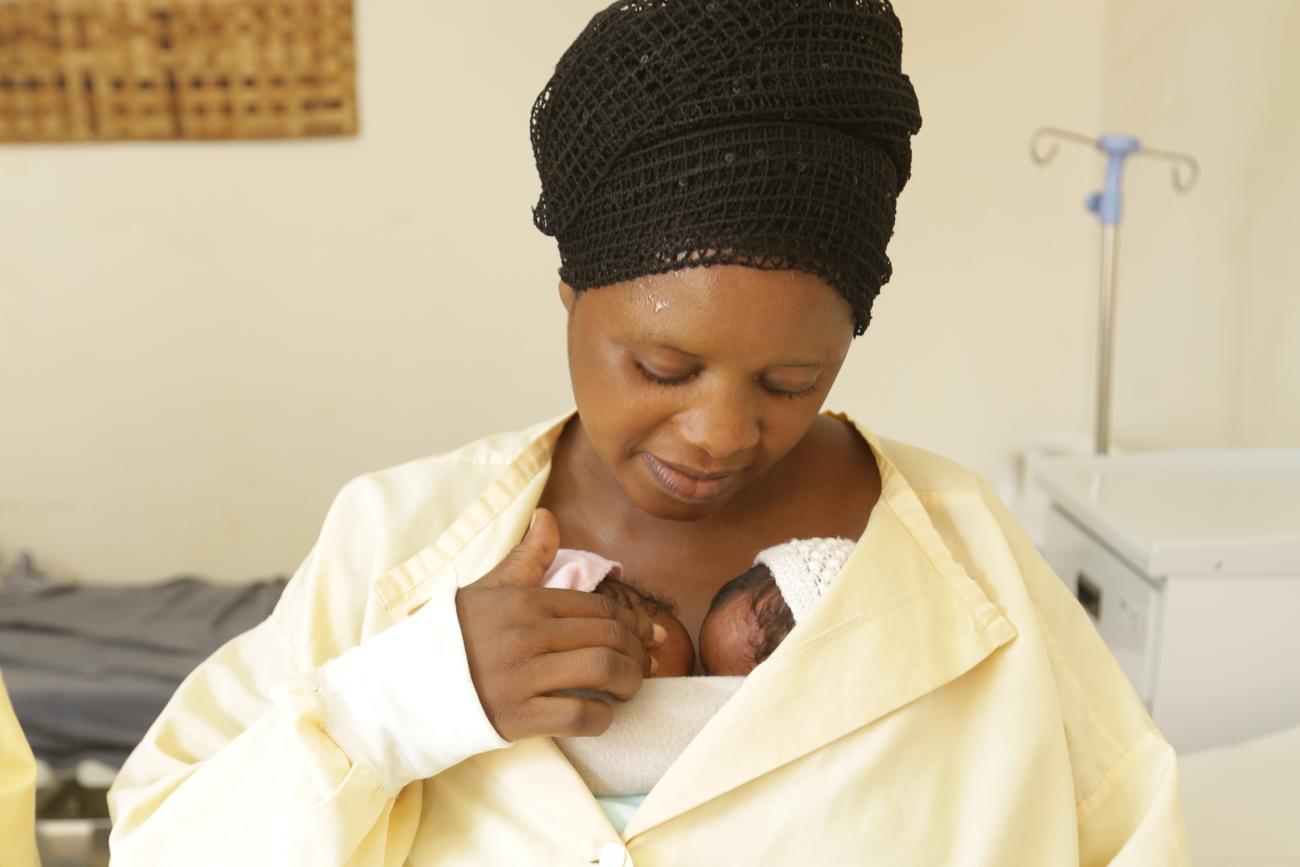Jemimah’s twins were born premature, weighing under two kilogrammes at birth.
Premature babies are prone to infections, feeding problems, and even Sudden Infant Death Syndrome. Children born premature are more likely to be chronically malnourished, which can lead to stunted growth.
Kangaroo Care
Jemimah’s babies are sleeping peacefully. “The doctors taught us to hold our babies like this,” she says, gesturing gently at the tiny bundles wrapped tightly to her chest. “When they feel the mother’s skin and warmth, they sleep better.”
This “Kangaroo Care” technique also helps premature infants gain weight and grow. It promotes bonding between parents and their babies due to decreased stress and crying.
Although three other mothers occupy the room with Jemimah, none of their children are crying. The room is clean and comfortable, the atmosphere is serene. The mothers chat quietly, occasionally giggling at a private joke.
Mentorship from abroad
Gahini Hospital was not always a haven. Doctors and nurses in Rwanda often lack the training and equipment they need if something goes wrong during pregnancy or child birth.
“When I had my first child here in 2011, the hospital was small,” she says. “I was nervous about being a first-time mother, but the doctors were not confident when caring for us.”
For every 1,000 babies born in Rwanda, 50 of them will not live to see their fifth birthday. Over 40 per cent of these deaths occur within the first month of life - the neonatal period. UNICEF is helping reduce these deaths by providing Rwandan doctors and nurses with more knowledge and equipment to save lives.
UNICEF brings paediatric specialists from the United Kingdom to spend six months mentoring Rwandan health care providers. These mentors work alongside Rwandan nurses every day, advising on individual cases and teaching weekly modules on caring for premature infants.
Jemimah’s eyes shine when she talks about her babies. “Our babies are growing well now; thanks to the new advice the doctors give us.”






